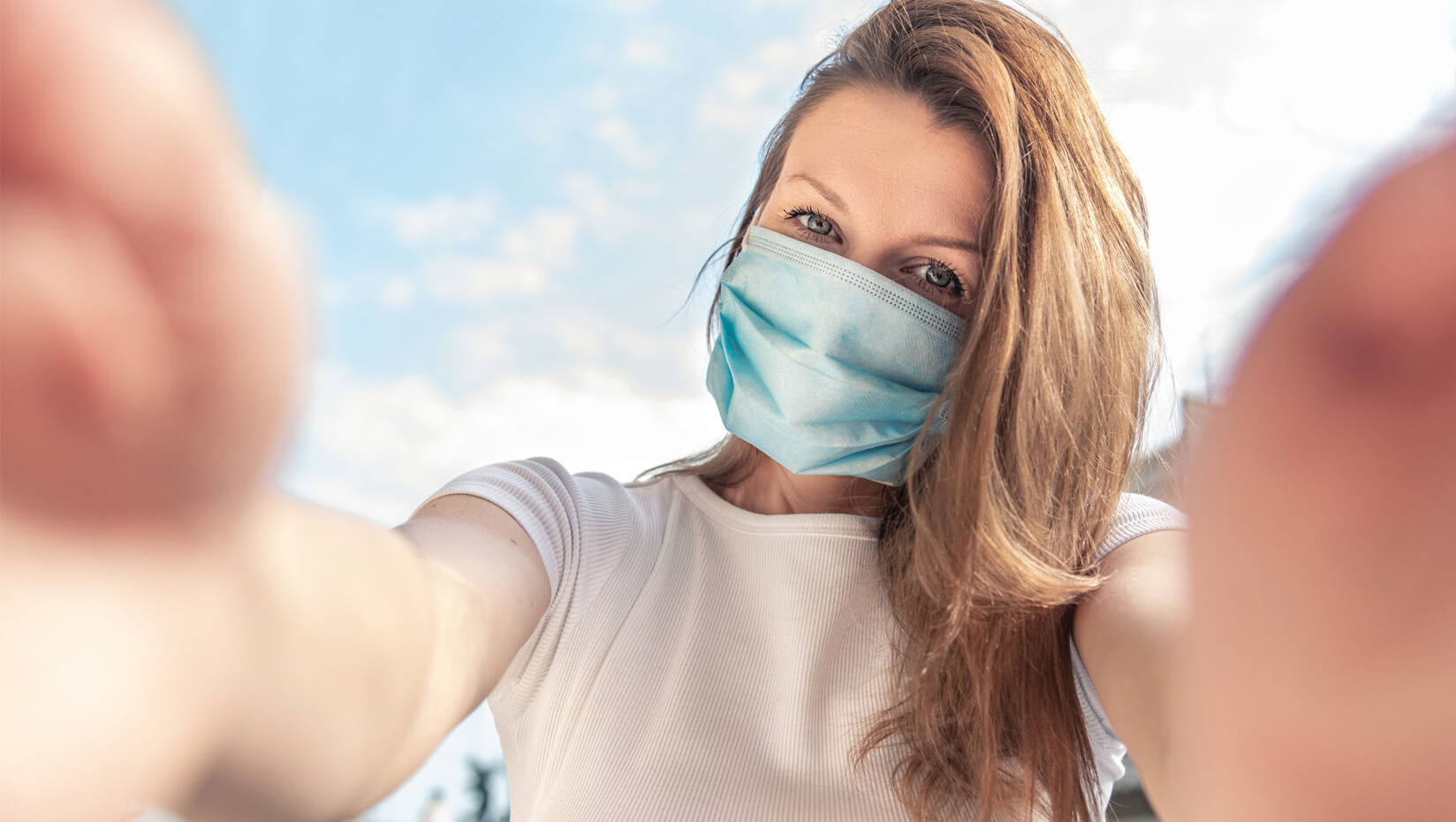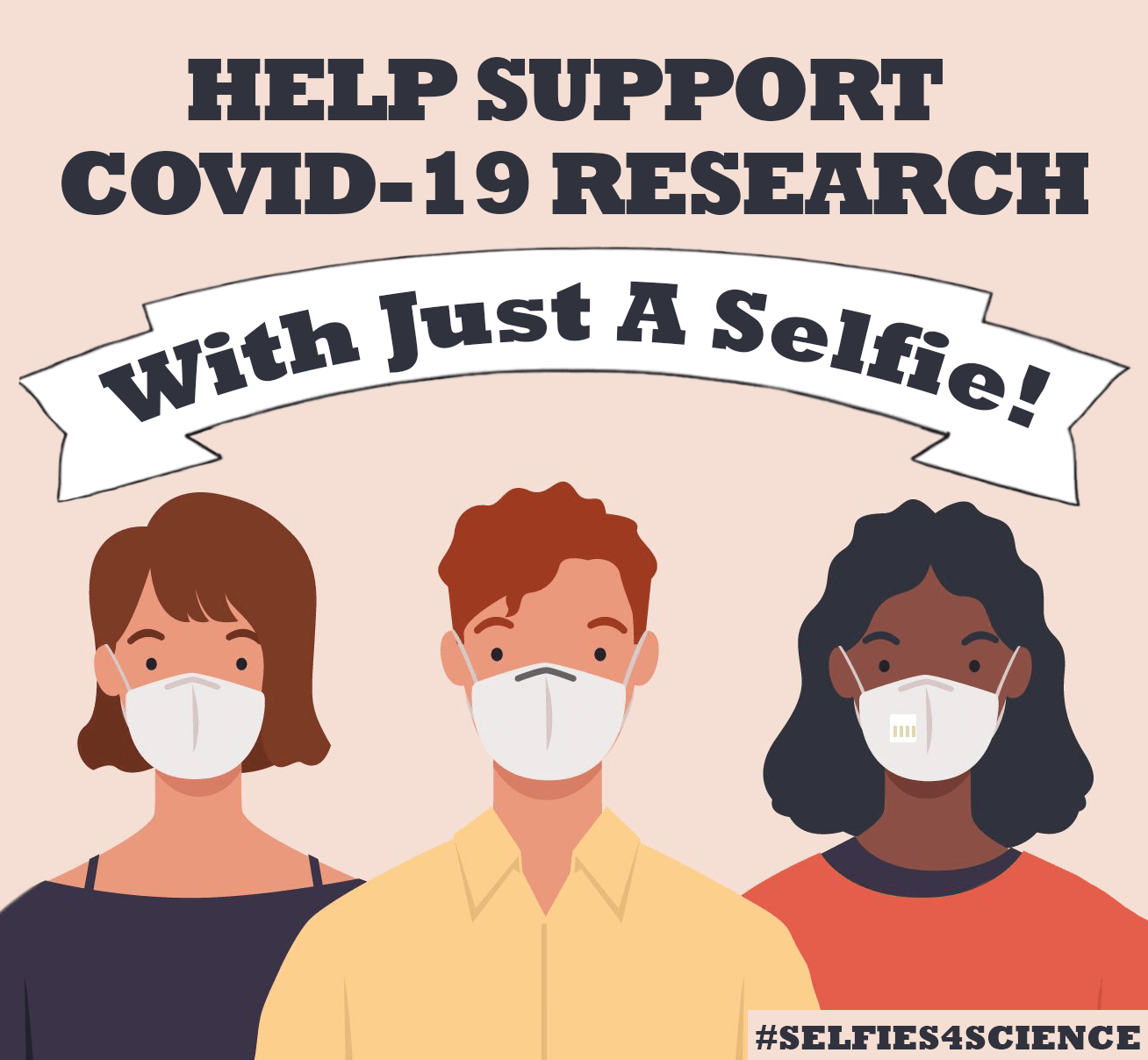
Ruben invites community to snap #Selfie4Science for face mask study

Next time you put on a face mask before heading into the grocery store, Mollie Ruben would like you to snap a selfie and send it her way.
Your #Selfie4Science will support COVID-19-related research.
Given the need to wear face masks as well as interact while wearing them, the University of Maine assistant professor of psychology is interested in learning about people’s social perceptions and biases related to face masks.
She’s building a database of people with and without face masks for a study that will have important implications for business, health care, education and interpersonal relationships.
“COVID-19 has certainly changed many aspects of our everyday lives but as a nonverbal communication researcher, the most stark change has been in our everyday social interactions,” says Ruben.
“Not only are we interacting with people in different or fewer ways, but when we do interact with others in public spaces, it’s often and will continue to be behind a face mask.”
Nonverbal research suggests the eye and mouth regions are particularly important for communication purposes and impression formation, she says.
“By blocking almost half of the face behind a mask, we are interested in how this impacts perceptions of others. How can we convey to our students this fall that we’re friendly, approachable professors without the usual smile?”
Ruben is a certified Facial Action Coding System (FACS) coder and is an expert at analyzing facial expressions to assess emotions.
At UMaine, she directs the Emotion, Pain, and Interpersonal Communication (EPIC) Lab, where she examines the expression and perception of nonverbal cues, and the role of nonverbal behavior in communication processes.
Nonverbal behaviors include facial expressions, body movement, gestures, appearance cues like hairstyle or piercings, tone of voice, and sociodemographic information such as gender, race or age.
Ruben’s research predominantly involves thin slices of behavior, including photographs or short videos of behavior.
“It turns out that individuals can and do regularly make judgments about others based upon this small amount of information,” she says.
Research on stigma and bias suggests that particular groups of individuals may be perceived differently with or without a mask than others.
“For example, a racial minority may seem more threatening in a mask than a racial majority group member,” says Shelby Helwig, a graduate student working alongside Ruben.
“We are interested in capturing what biases may exist for particular stigmatized groups when wearing or not wearing a mask in the hopes of using this information to help reduce these potential biases from forming.”
For this initial portion of the project, Ruben is gathering photographs and people’s basic demographic information. In the second part, she’ll ask people to make first-impression judgments about the photographs.
Doctoral student Morgan Stosic also will work with Ruben and Helwig on the project. To take part, upload a photograph of yourself in a face mask to the University of Maine Face Mask Database.
Contact: Beth Staples, beth.staples@maine.edu
